 May 2023 in “Australasian Journal of Dermatology”
May 2023 in “Australasian Journal of Dermatology” Various substances, including cosmetic sponges, vein glue, chai tea, skincare products, and medicaments, can cause allergic contact dermatitis, and healthcare workers often react to N95 masks.
1 citations,
February 2017 in “PubMed” The supplement may help hair growth and is safe, but more research is needed.
165 citations,
July 1992 in “Annals of Internal Medicine” Herbal products can be dangerous and cause serious health issues.
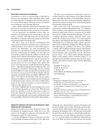 December 2006 in “International Journal of Dermatology”
December 2006 in “International Journal of Dermatology” Mnemonics with one letter are useful and easy to remember for learning dermatology.
 April 2008 in “Expert review of dermatology”
April 2008 in “Expert review of dermatology” Mutations in the P2RY5 gene cause hereditary woolly hair.
May 2016 in “DOAJ (DOAJ: Directory of Open Access Journals)” Asian women often experience distinct hair thinning at the top of the head.
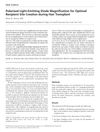 5 citations,
September 2005 in “Dermatologic Surgery”
5 citations,
September 2005 in “Dermatologic Surgery” Using a polarized LED magnifier during hair transplants eases recipient site creation and reduces eye strain but doesn't improve graft creation or placement.
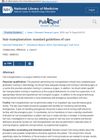 10 citations,
January 2008 in “PubMed”
10 citations,
January 2008 in “PubMed” Hair transplantation is a safe, outpatient procedure for restoring hair in individuals with pattern hair loss or certain types of scarring, requiring a trained physician and team, with ongoing medical treatment recommended.
January 2023 in “Singapore Medical Journal” Men with androgenetic alopecia have unique metabolomic patterns that could help develop targeted treatments.
October 2011 in “한국생물공학회 학술대회” The shampoo with Scutellaria baicalensis and Glycyrrhiza glabra helps reduce hair loss.
 23 citations,
August 2012 in “Veterinary dermatology”
23 citations,
August 2012 in “Veterinary dermatology” Skin infections in cats are more common than thought, often affect young cats with allergies, and need better treatments.
January 2022 in “Journal of Ayurveda case reports” Ayurvedic treatment significantly reduced hair loss and improved hair quality in a 30-year-old male.
Topical tretinoin 0.01% cream effectively treats eruptive vellus hair cysts.
 March 2014 in “Faculty Opinions – Post-Publication Peer Review of the Biomedical Literature”
March 2014 in “Faculty Opinions – Post-Publication Peer Review of the Biomedical Literature” Dutasteride 0.5mg was found to be more effective than finasteride 1mg in treating male pattern hair loss, with similar side effects.
May 2021 in “Faculty Opinions – Post-Publication Peer Review of the Biomedical Literature” February 1996 in “Clinical Pharmacology & Therapeutics” MK-386 reduces sebum DHT levels.
 July 1997 in “The Lancet”
July 1997 in “The Lancet” A new protein linked to Alzheimer's was discovered, and a hair loss treatment showed effectiveness but had some sexual side effects.
2 citations,
December 2013 in “Journal of dermatology” A specific gene mutation causes a rare hair loss condition in a Chinese patient.
January 2000 in “DOAJ (DOAJ: Directory of Open Access Journals)” 35 citations,
February 2004 in “Veterinary Dermatology” Cutaneous lymphocytosis in cats is a slowly progressing, relatively benign disease affecting older cats, often causing skin lesions and systemic signs.
 14 citations,
December 2007 in “Journal of The European Academy of Dermatology and Venereology”
14 citations,
December 2007 in “Journal of The European Academy of Dermatology and Venereology” The article concludes that dermatologists should prescribe lifestyle drugs carefully and consider mental health treatments for patients with disorders like BDD.
 June 2011 in “Journal of clinical and experimental investigations”
June 2011 in “Journal of clinical and experimental investigations” Oral zinc sulphate is an effective and safe treatment for thallium poisoning.
 February 2024 in “Journal of dermatology research reviews & reports”
February 2024 in “Journal of dermatology research reviews & reports” A 50-year-old woman with breast cancer developed an autoimmune skin disorder, highlighting the need for thorough checks and team-based treatment.
 February 2024 in “BMC health services research”
February 2024 in “BMC health services research” Policymakers should integrate criteria like risk of harm, skills, qualifications, and teamwork to define allied health professions in Malaysia.
 December 2011 in “The Diabetes Educator”
December 2011 in “The Diabetes Educator” The Blood Glucose Management Service improved patient safety and outcomes in managing blood sugar in hospitalized patients.
January 2005 in “DOAJ (DOAJ: Directory of Open Access Journals)” May 2013 in “Optometry and vision science” The document discusses challenges in eye care, including treating melanoma before macular hole repair, bloody tears resolved by blood pressure control, eyelash regrowth in hair-pulling disorder with medication, a non-invasive method to detect eyelash mites, and the psychological factors affecting contact lens comfort.
 1 citations,
June 2023 in “International journal of biological macromolecules”
1 citations,
June 2023 in “International journal of biological macromolecules” Human hair proteins can help blood clot when mixed in equal parts.
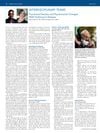
The interdisciplinary approach improved the quality of life for a Parkinson's patient and eased staff workload.
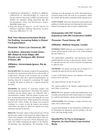 September 2018 in “Plastic and Reconstructive Surgery – Global Open”
September 2018 in “Plastic and Reconstructive Surgery – Global Open” Using real-time ultrasound during gluteal fat grafting is safe and reduces complication risks.
















